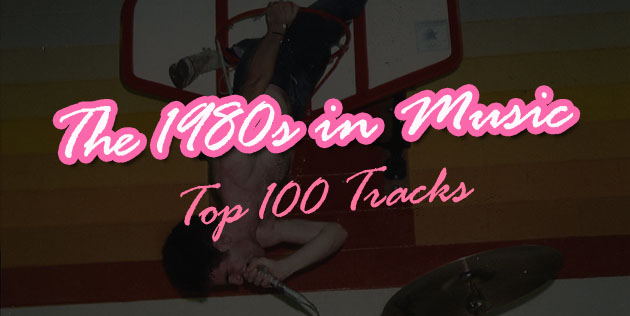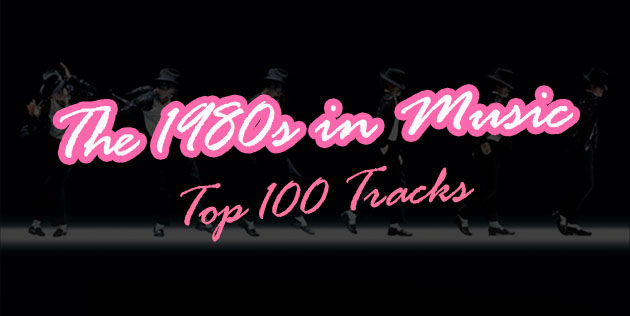
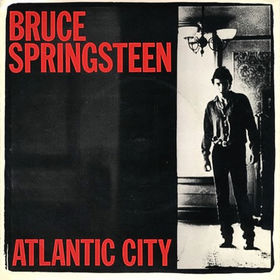
10.
Bruce Springsteen
“Atlantic City”
[Columbia; 1982]
Chronicling an emasculated casualty of social decay – a wretched fellow whose “luck may have died…and love may be cold” – Springsteen’s “Atlantic City” searches in vain for the elusive promise of rebirth. A hard working Joe with “debts thatno honest man can pay,” the singer feels that claustrophobic pressure of economic ruin closing in.
Faced with the menacing languor of rustbelt suffocation, this bewildered everyman contrasts starkly with the youthfully exuberant, rebellious ragamuffins portrayed in Springsteen’s early work. Channeling his protagonist, The Boss spurned Columbia Records’ fat cat execs by frugally recording this cut in his bedroom with a 4 track Tascam recorder “mixed through an old Gibson guitar unit to a beat box.”
Set to a sparse acoustic guitar, “Atlantic City” is transfixed between unrelenting despair and tentative optimism. Bruce’s gravelly voice resounds: “Everything dies, baby, that’s a fact/ But maybe everything that dies someday comes back.” Atop Steven Van Zandt’s poignant mandolin lines, a melancholy harmonica seeps thorough dour lyrics. Tortured, spectral howls alert us to the chasm in Capitalism’s safety net spreading like cancer, as a spell of unemployment is all that stands between the American Dream and a waking nightmare. Springsteen preaches in agony as the simple virtue of the middle ground – and middle class – is lost to a vicious, desperate ethos of competition: “Down here it’s just winners and losers and don’t get caught on the wrong side of that line.”
– Henry Hauser
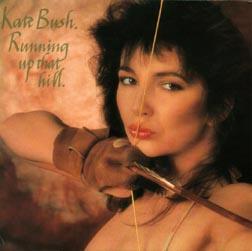
9.
Kate Bush
“Running Up That Hill”
[EMI; 1985]
“If I only could/ I’d make a deal with God/ and I’d get him to swap our places” Kate Bush swears on the classic 1986 track, “Running Up That Hill.” I tell you what—if I only could, I’d make a deal with God to make sure that at some pivotal point in music history, Kate Bush swaps places with Madonna, Whitney Houston, or any “mainstream” female pop icon. “Running Up That Hill” was supposed to be the song that launched Kate into the star-studded American Top 40 pop world, and while it enjoyed some success here, it fell short of the label’s goals. Sure, “Running Up That Hill” has plenty in common with the average mainstream pop song in ’86. Dated synth line? Check. Cheesy drum fills? Yep – check. Fantastic melody? Check, check. However, if you listen closely, you can hear a visionary at work. The galloping percussion, the heavy lyrics, and the vocal acrobatics render it unlike anything on the radio during its time. Let’s just say I dare the Material Girl to try and produce anything like this.
– Arika Dean
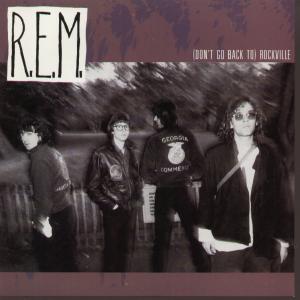
8.
R.E.M.
“(Don’t Go Back To) Rockville”
[IRS; 1984]
One of only two singles from 1984’s Reckoning (the other being “So. Central Rain”), “(Don’t Go Back To) Rockville” is a Mike Mills song that was written as a plea with a girlfriend not to return to her parents’ house in Rockville, MD. Though writing credits go out to the whole band, the song has evolved to become a Mills staple, often sung by the bassist/keyboardist live in concert. Still, on record, it is every bit a full-band song. Capturing the band’s southern roots with a country arrangement, their Velvet Underground-influence with the jangle that persists throughout, and their gift at memorable one-liners, notably “at night I drink myself to sleep and pretend that I don’t care that you’re not here with me,” a line that is never easy to swallow with an open bottle and a quiet room. These elements add up to a sound that feels classic but never dated, showcasing R.E.M. at their peak and hinting at songs that would follow in years to come.
– Philip Cosores

7.
U2
“Bad”
[Island; 1984]
U2 have always been known for their anthemic songs, but what separates the “Bad”s of their catalog from “Pride (In the Name of Love),” “Sunday Bloody Sunday,” and “Surrender” is the shift from the political to the personal. Sure, “Bad” was written about saving heroin addicts, but when the lyrics are delivered, and the listener is there, in the moment, they could be saving a person from anything bad. It helps that they’re backed by the lush instrumentation of The Unforgettable Fire, and Bono’s delivery is incredibly uplifting. U2 wrote a ton of great songs with great peaks and crescendos, but “Bad” might just top them all. Even at the Glastonbury Festival, over 25 years later, when U2 unsuspectingly broke out the song with Bono’s voice aged and unable to hit that high of notes, it still was just as powerful as it was at Live Aid in 1985 (though it wasn’t as extended). Songs like “Bad” really cemented U2 as a band for the people, which is something people seem to forget these days.
– Ryan Nichols
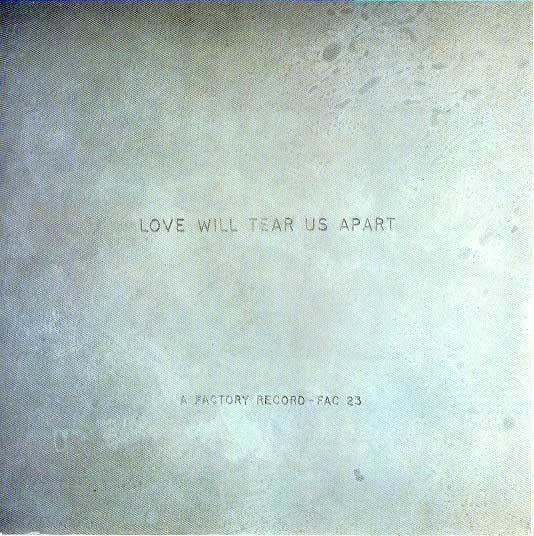
6.
Joy Division
“Love Will Tear Us Apart”
[Factory; 1980]
“Love Will Tear Us Apart” is one of the most immediately recognizable rock songs in modern history, but part of its lasting allure goes well beyond it’s aesthetics. The song, written in 1979 but not released until April 1980, has gone on to serve as frontman Ian Curtis’ final love letter. After Curtis took his life in May 1980, the incredible song became even more powerful when it took on the impressions of a public suicide note. The song would quickly become the band’s best-seller and hallmark. Curtis’ drawl throughout the song’s refrain – his dry, wounded delivery – remain benchmarks today. And the song’s title, appropriately enough, is scrawled across the singer’s tombstone.
– Andrew Bailey
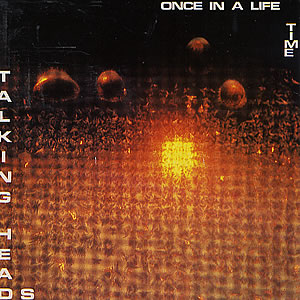
5.
Talking Heads
“Once In A Lifetime”
[Sire; 1981]
I remember seeing the video for Talking Heads’ “Once In A Lifetime” on television as a young teen and thinking ‘what the hell is this crazy man doing on my television?’. Of course, once the chorus kicked in there was an immediate familiarity, the catchy melody had permeated my mind from hearing it (probably many times) passively on car radios and in movies. This all ties into what makes “Once In A Lifetime” a good and memorable song; a winning, singalong chorus and a remarkable video that got heavy rotation in the early days of MTV.
Of course, the version in the video is a slightly curtailed one, and those who picked up Talking Heads’ Remain in Light and listened to it in full found the complete version, the centrepiece of the album, and realised what makes it a truly great song. Amongst an album filled with songs that incorporate African rhythms and stream-of-consciousness lyrics, “Once In A Lifetime” is the song that everyone relates to. That feeling of being swept up, a numbness towards life, a feeling that you’re moving directionlessly with no purpose – but when the chorus kicks in it’s almost a celebration of this, and you realise that you’re not the only person who feels this way.
– Rob Hakimian
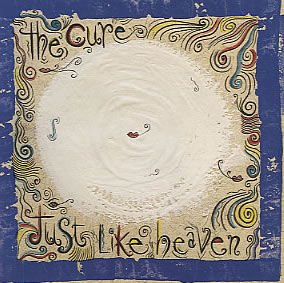
4.
The Cure
“Just Like Heaven”
[Fiction; 1987]
Artists don’t usually offer up their defining tracks before they’re finished to television shows but so was the case with “Just Like Heaven.” Frontman Robert Smith presented an unfinished instrumental version of the track for French variety show Les Enfants du Rock (The Children of Rock). Smith would add lyrics and finish up the song during the recording session for Kiss Me, Kiss Me, Kiss Me at Studio Miraval in southeastern France.
Evoking memories of a trip with his wife to be, Smith created a song about being head-over-heels in love. The synths are glowing, the main guitar riff is infectious, and Smith’s vocal delivery is as fervent as ever. Despite having a catalog of dark, tormented, alternative rock music, The Cure’s crowning track is overjoyed and brimming with life.
– Evan Kaloudis
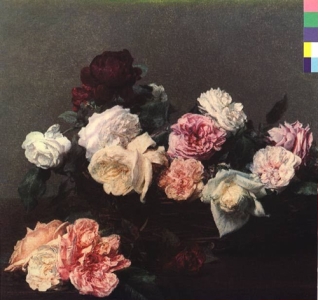
3.
New Order
“Age Of Consent”
[Factory; 1983]
Although “Age of Consent” wasn’t the first track out of the New Order camp, all eyes were on the band for their first entirely original full-length, Power, Corruption & Lies.
Opener “Age of Consent” with its enchanting riff, is a triumphant display of New Order’s ability. The Manchester boys’ playing is proficient as ever. Melodically, it challenges not only all preceding Joy Division tracks, but most of the tracks on this very list. But most importantly, New Order proved that they could have just as much substance without the late Ian Curtis. “Age of Consent” tells the story of a sexual relationship, its shortcomings, and seemingly the complications that arise with age differences.
Although they lost an incredible musician and a great friend with Ian’s passing (perhaps the “I’ve lost you” at the end of the song has a second, deeper meaning), Sumner, Hook, and Morris rode on and created some of the greatest music of their time. No one knows what Joy Division would have been capable of in the rest of the ’80s, but New Order proved to be a better replacement than any Joy Division fans could have ever have hoped for.
– Evan Kaloudis
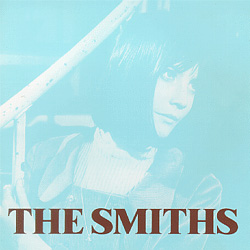
2.
The Smiths
“There Is A Light That Never Goes Out”
[Rough Trade; 1986]
I’ve got a friend who has the song lyrics “there is a light that never goes out” tattooed on his arm in Spanish. What is it about The Smiths’ 1986 anthem, which strangely didn’t receive a proper single release until 1992, that affects people so deeply, as to record cover version of the song for their album, or to play it at their wedding or, in Armando’s case, to permanently etch it on their body? Compositionally, it is tight, with Johnny Marr adding a flute part to the second verse to distinguish it from the many similar Smiths songs. Narratively, it is depressively romantic, in the same way that Romeo & Juliet or any story of love and death is. But none of these elements are ultimately what you remember about “There Is A Light That Never Goes Out.”
No, what makes “There Is A Light That Never Goes Out” special is the emotional weight it packs, driven by lust, passion, and isolation — feelings that young people thrive on. Lines like “take me out tonight, because I want to hear music and I want to see life,” sound right any night of the week. The idea of being in love so deeply that you wouldn’t care if your life ended right then is adolescent, but enviable. The feeling that another person can rescue you from misery, feeling like you don/t belong, or feeling anything, really, keeps many people going. This song, so youthful in its appeal, has managed to make teenagers feel like they are not alone for decades. And that is pretty awesome.
– Philip Cosores
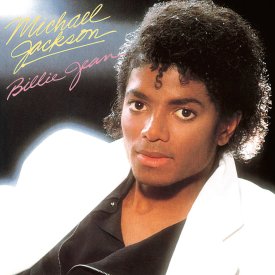
1.
Michael Jackson
“Billie Jean”
[Epic; 1983]
That “Billie Jean” ranks as our favorite song of the 1980s should come as little surprise. By nearly any metric you can come up with, the song is one of the greatest ever recorded in pop music’s long pantheon of hits. “Billie Jean” possesses one of the most memorable basslines and percussion rhythms in the history of music, a combination so strong that it still harnesses enormous dancefloor power nearly 30 years later. If you can make it through the first 10 seconds without at least tapping your foot to the ground, you may be void of a heart. The song charted all over the world, won numerous awards (for both the single and the video), and catapulted Thriller to throne of highest selling album of all-time. In fact, thanks in no small part to Jackson’s untimely death in 2009, Thriller remains – largely on the unyielding strength of “Billie Jean” – the top seller of all-time, moving more than 110 million units — twice as many as its next challenger.
– Andrew Bailey

